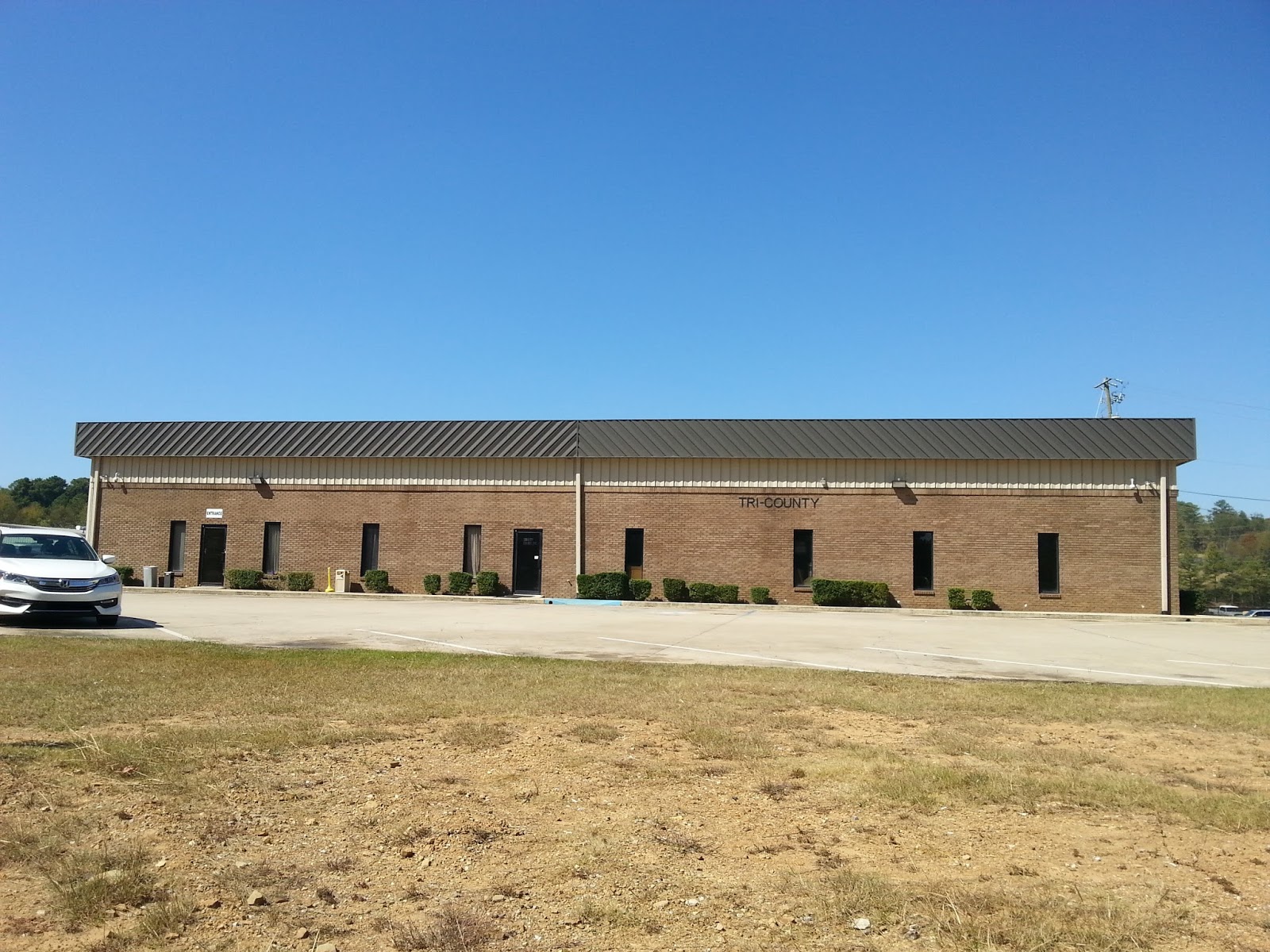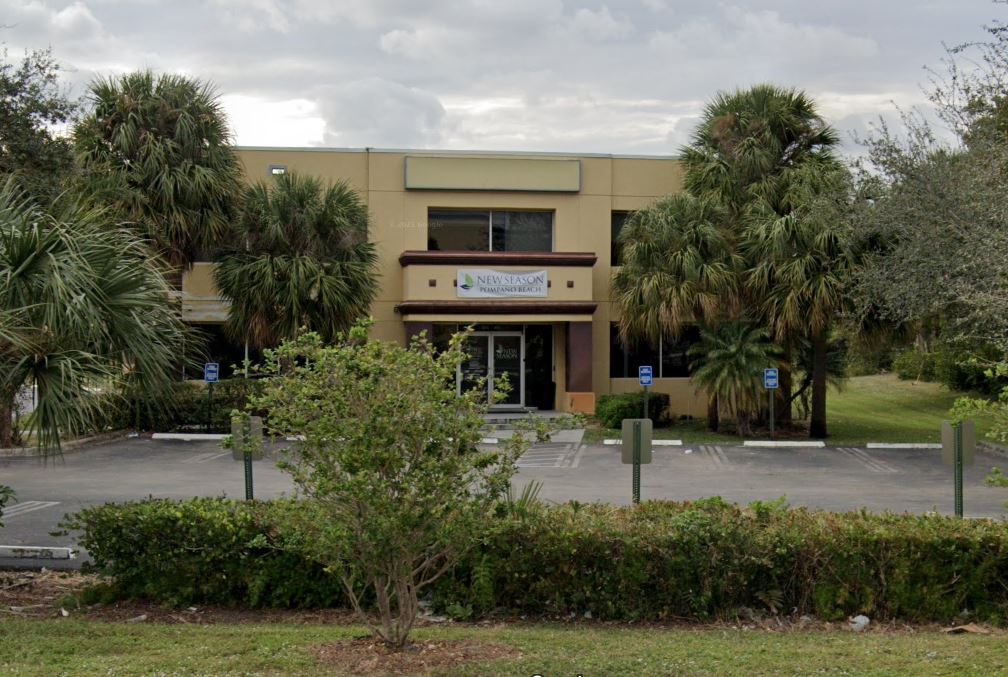Hagerstown Treatment Center - New Season

Overview
Hagerstown Treatment Center - New Season is an accredited substance abuse treatment center that provides outpatient treatment for men and women between 18 and 65+ years of age. As part of their special programs, Hagerstown Treatment Center - New Season treats clients with co-occurring mental and substance use disorders, veterans, and members of military families. To help patients achieve sobriety, Hagerstown Treatment Center - New Season provides intake assessments. Afterward, patients receive cognitive behavioral therapy, telemedicine/telehealth therapy, and substance use disorder counseling during treatment. Hagerstown Treatment Center - New Season is located in Hagerstown, Maryland, providing treatment for people in Washington County, accepting cash or self-payment, medicaid, and medicare.
Hagerstown Treatment Center - New Season at a Glance
Payment Options
- Cash or self-payment
- Medicaid
- Medicare
- Private health insurance
- Daily
Assessments
- Comprehensive substance use assessment
- Outreach to persons in the community
- Screening for substance use
- Complete medical history/physical exam
Age Groups
- Seniors or older adults
- Young adults
- Adults
Ancillary Services
- Case management service
- Social skills development
- Opioid use disorder clients only
Accreditations
State department of health:

Government agencies issue State Licenses, which grant rehabilitation organizations permission to conduct their operations lawfully within specific geographic regions. Licenses needed to operate are typically determined by the type of rehabilitation program offered by the facility and its physical location.
Drug Enforcement Agency (DEA):
DEA accreditation refers to the process by which a law enforcement agency is recognized by the Drug Enforcement Agency (DEA) as having met specific training, operational, and resource requirements necessary to participate in DEA-led drug enforcement efforts. This accreditation allows the agency to perform DEA-related tasks such as conducting investigations, executing federal search warrants, and participating in joint task forces.
SAMHSA certification for opioid treatment program (OTP):
SAMHSA's Opioid Treatment Programs (OTP) accreditation is a prestigious recognition that signifies a program's compliance with stringent standards and guidelines established by the Substance Abuse and Mental Health Services Administration (SAMHSA). This accreditation demonstrates an OTP's commitment to providing high-quality, evidence-based care for individuals struggling with opioid use disorder (OUD). It serves as a trusted symbol of accountability and excellence, assuring patients, families, and communities that the OTP offers safe, effective, and comprehensive treatment options for OUD.
Commission on Accreditation of Rehabilitation Facilities (CARF):

CARF accreditation is a globally recognized certification for rehabilitation and human service organizations. It signifies that an organization meets high-quality standards and is committed to providing top-level care. Achieving CARF accreditation involves a rigorous evaluation process, including on-site surveys. This accreditation enhances an organization's reputation, instills trust in clients and funders, and encourages ongoing excellence in the field.
Treatment At Hagerstown Treatment Center - New Season

Conditions Treated
Alcoholism:
Alcohol addiction is a health problem where drinking takes control over a person's life. It affects how their brain thinks and acts, leading to strong desires to drink, bad feelings, sudden actions, and discomfort when not drinking. To help someone with this problem, there are treatments like detox, counseling, group support, and learning coping methods. While treatment can't completely cure the urge to drink, it helps people regain control of their lives and feel better overall.
Substance use treatment:
Substance use rehabilitation embodies a holistic treatment approach crafted to assist individuals contending with drug or alcohol addiction. This all-encompassing rehabilitation strategy encompasses two crucial components: initially addressing the physical dependency, frequently commencing with detoxification, and subsequently confronting the psychological triggers through a diverse array of therapeutic methods. The overarching objective is to empower individuals to achieve and maintain sobriety while equipping them with essential skills and coping mechanisms for a successful reintegration into society and a life free from substance abuse.

Levels Of Care
Outpatient:
Outpatient programs are designed for individuals in stable medical condition with a low risk of relapse, often those who've completed inpatient treatment. These programs extend the foundation of prior treatment approaches, offering continuous addiction guidance and resources for sustained recovery. For those transitioning straight from detox, medical and psychological assessments are typically conducted, leading to the development of individualized treatment strategies. The majority of outpatient rehab centers provide diverse care levels, customized to each client's unique requirements.
Outpatient methadone/buprenorphine or naltrexone treatment:
Naltrexone, an FDA-sanctioned medication, is employed to address both opioid and alcohol dependencies. It aids in curbing cravings and warding off relapses, facilitating a smoother recovery process. It's available as a daily pill (brands include ReVia and Depade) or as a monthly injection (brand name Vivitrol). Prior to commencing naltrexone, patients should be free of any illicit opioids or opioid medicines for a duration of 7-10 days, including methadone.
Regular outpatient treatment:
Regular Outpatient Treatment involves scheduled therapy sessions typically held on an outpatient basis, allowing individuals to receive essential support while maintaining their daily routines. These sessions usually range from one to three times per week, providing a flexible approach to recovery that accommodates the individual's needs and progress. It offers a structured environment for therapy and counseling, enabling individuals to address addiction or mental health issues while continuing to engage in their daily responsibilities.

Treatment Modalities
Cognitive behavioral therapy:
Cognitive Behavioral Therapy (CBT) is a therapeutic approach that emphasizes the interconnectedness of thoughts, emotions, and actions. It promotes healthy reactions to thoughts and emotions, steering individuals away from harmful responses such as substance abuse. Proven effective for various addiction recoveries, CBT enhances an individual's self-awareness and self-control. Through CBT, individuals learn to better gauge their emotional well-being, communicate more effectively, and handle stress without resorting to drugs or alcohol.
Telemedicine/telehealth therapy:
Telehealth Therapy is a level of care that offers psychological counseling and therapeutic services to individuals via digital platforms, such as video conferencing, phone calls, or messaging apps. This approach allows clients to connect with qualified therapists remotely, providing increased accessibility, flexibility, and convenience, especially for those who may have mobility issues, live in remote areas, or prefer the comfort of their own environment. By leveraging technology, Telehealth Therapy bridges the gap between patients and mental health professionals, ensuring continuity of care irrespective of physical distances.
Substance use disorder counseling:
Substance use disorder counseling treatment modalities refer to various approaches and methods used in the counseling and treatment of individuals with substance use problems. This can include individual therapy, group therapy, cognitive behavioral therapy, motivational interviewing, family therapy, and 12-step programs. The goal is to help the individual overcome their substance use, develop healthy coping skills, and lead a fulfilling life in recovery.
Group counseling:
Group Therapy is a therapeutic space where individuals battling addiction come together to share experiences, gain insights, and support one another on their journey to recovery. Facilitated by trained professionals, this setting fosters communal healing and empowers participants to overcome the challenges of addiction through collective strength and understanding.
Intervention Services:
"Intervention" refers to a deliberate action or set of actions taken to directly address and alter a specific situation or behavior. Often used in contexts like medicine, psychology, and social work, interventions are designed to prompt positive change, whether it's to prevent harm, improve health, or enhance the quality of life. They can range from medical procedures to address health issues, to structured meetings aimed at helping individuals combat addiction or destructive behaviors.
Contingency management/motivational incentives:
Contingency management and motivational incentives are evidence-based treatment modalities used in addiction and behavioral health programs. Contingency management involves the use of rewards to reinforce positive behaviors and change negative behaviors, while motivational incentives provide incentives to engage in treatment and sustain recovery. Both approaches are designed to increase motivation and engagement in treatment and have been shown to be effective in promoting positive outcomes.
Motivational interviewing:
Motivational Interviewing (MI) in addiction treatment is a client-centered counseling approach designed to enhance an individual's intrinsic motivation to change. By addressing ambivalence and tapping into personal values, MI fosters meaningful conversations about substance use and promotes commitment to recovery-focused goals.
Anger management:
Anger Management is a therapeutic approach aimed at helping individuals recognize the triggers and signs of their anger and teaching them effective ways to calm down and deal with the situations in a positive manner. Through a blend of counseling, cognitive-behavioral therapy, and practical skill development, individuals learn to reduce aggressive responses, improve communication, and enhance interpersonal relationships, contributing to a better quality of life.
Relapse prevention:
The Relapse Prevention Model is a cognitive-behavioral approach designed to help individuals anticipate and effectively cope with potential challenges and high-risk situations that may lead to a return to undesired behaviors, often after a period of abstinence or behavior change. This model emphasizes the importance of recognizing early warning signs, developing coping strategies, and building self-efficacy to sustain positive change and avoid setbacks. Commonly used in addiction therapy, it can also be applied to other areas where behavior change is sought, such as weight management or anger control.
Individual psychotherapy:
Individual Psychotherapy is a personalized therapeutic approach aimed at aiding individuals in overcoming addiction and its underlying psychological triggers. A licensed therapist works closely with the individual through one-on-one sessions to unearth and address personal challenges, emotional issues, and behavioral patterns contributing to their substance abuse. Individual psychotherapy lays a robust foundation for a sustainable recovery and a better quality of life by fostering self-awareness, coping strategies, and healthier behavioral responses.
Ancillary Services
Languages
- Sign language services for the deaf and hard of hearing
- Spanish
Additional Services
- Pharmacotherapies administered during treatment
- Housing services
- Breathalyzer or blood alcohol testing
Special Programs
- Clients with co-occurring mental and substance use disorders
- Veterans
- Members of military families
- Criminal justice (other than DUI/DWI)/Forensic clients
- Pregnant/postpartum women

Additional Locations
Contact Information
DISCLAIMER: The facility name, logo and brand are the property and registered trademarks of Hagerstown Treatment Center - New Season, and are being used for identification and informational purposes only. Use of these names, logos and brands shall not imply endorsement. BetterAddictionCare.com is not affiliated with or sponsored by Hagerstown Treatment Center - New Season.



